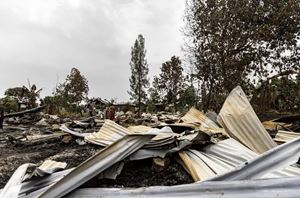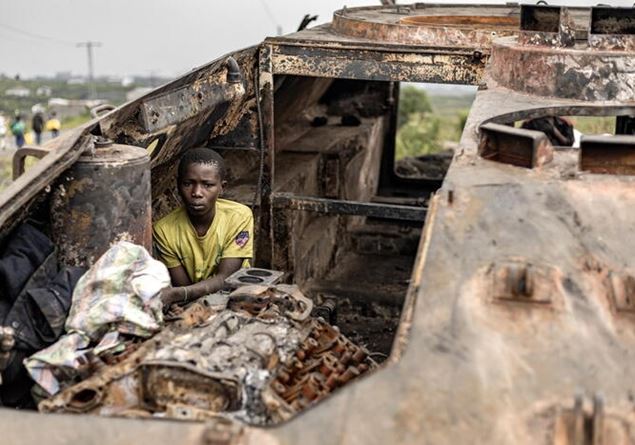Still blood in the Democratic Republic of the Congo. Still faithful Christians massacred while praying. In Komanda, in the north-east of the country, forty people were slaughtered on 27 July by militants of the allied democratic forces (ADF), an armed group active for decades in the region. According to what is reported by local sources to the agency AFP, The victims were gathered in a moment of community prayer when the rebels fell over them, armed with machetes and rifles, killing them mercilessly.
The testimonies are heartbreaking: «We found bodies scattered everywhere. Many were mutilated, “said a manager of the local red cross. The attacks focused in the villages of Masala, Mambelenga and in Komanda itself, in the territory of Irumu, province of the ethrius. According to NGO Cepadho, the militias divided into groups and acted simultaneously to maximize the number of victims and disoriently disorient. A terror strategy that has been repeated for years.
A long trail of blood
It’s not the first time. And unfortunately, in all likelihood, it will not be the last. Only in February of this year, in the neighboring province of North Kivu, at least 70 Christians were killed in a similar way: hit while praying, in a night raid claimed, once again, by the ADF. The group, of Ugandan origin but active in the eastern part of the Congo since the 90s, has long been affiliated to the Islamic State, which amplifies its propaganda and supports its jihadist ideology. According to the UN, the ADFs killed over 7,000 civilians from 2014 to today, making them one of the most bloody militias in the country.
The goal is twofold: destabilize and conquer. The ADF aim to create an Islamic State in the heart of the Congo, financing themselves with illegal traffic of gold, timber and natural resources. But they above all affect Christians, which represent about 95% of the Congolese population. The attacks against churches, shepherds and faithful are targeted, systematic. These are not the “side effects” of the conflict: they are chosen targets.
The forgotten face of the persecution
In many African countries, the Christian faith is under attack. But the Democratic Republic of the Congo, despite being one of the most populous and rich states of the continent, remains dramatically outside the spotlight. “There is a silent persecution that is consumed day after day”, reports Open Doors, who publishes the “World Watch list” of the countries where it is more dangerous to be Christian every year. The Congo went up to 41st placebut with a growing trend that worries.
Christians are killed not only because they believe in Jesus, but also because they represent the only embankment organized against chaos armed. For this they are targeted.
A hostage country of the militias
The Democratic Republic of the Congo has been in war for over thirty years. A low intensity conflict but with high destructiveness. According to an in -depth analysis published by Oxfam Italia, more than 100 armed groups are active in the Eastern the country. The reasons are manifold: control of resources, ethnic rivalries, absence of the state, foreign interference. The result is a permanent humanitarian crisis.
North Kivu and Ituri are among the most tormented areas. Millions of people live in refugee camps, without access to care, education or safety. The institutions are fragile, the army is often an accomplice of violence, the international community absent or ineffective.

A church that does not surrender
In this scenario of terror and abandonment, the Catholic Church continues to be one of the few forces in the area. Despite the attacks, priests, nuns and lay people have not left the parishes. They continue to offer spiritual comfort, food, refuge. Congolese Caritas is one of the most active organizations in the distribution of aid.
Pope Francis has repeatedly denounced the situation. In 2023 he had visited the capital Kinshasa, meeting victims of violence and reaffirming his closeness to the Congolese people. After the massacre of Komanda, the Vatican press room expressed “profound sadness and solidarity in prayer for innocent victims”.
The silence that hurts
But Outside the Church, silence is deafening. Europe, distracted by other crises, rarely mentions the Congo. The UN has reduced its military presence in the countrywhile the African Union is unable to exercise effective pressure. The sentences, when they arrive, are formal and late.
Yet, behind each figure there is a story. Behind every village razed to the ground there is a broken community. Behind every prayer interrupted by a gust of machine gun, there is a faith that resists.


